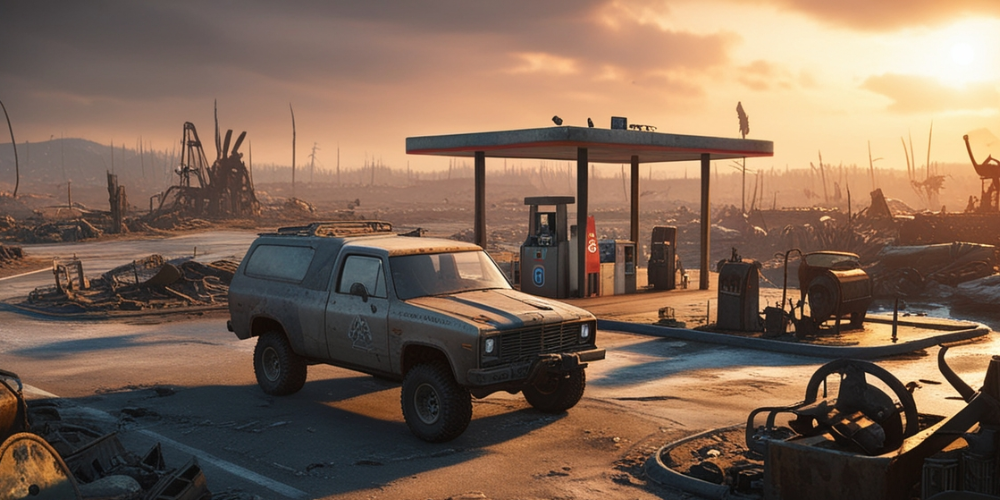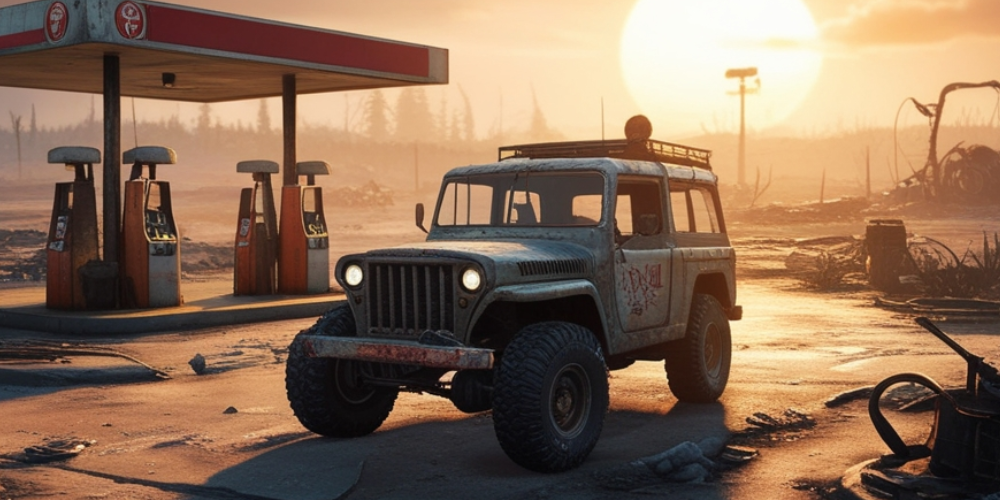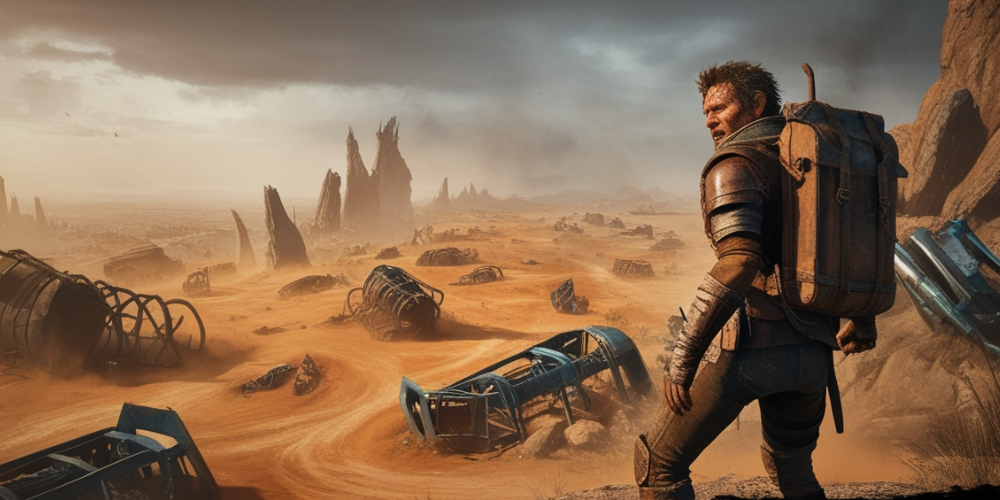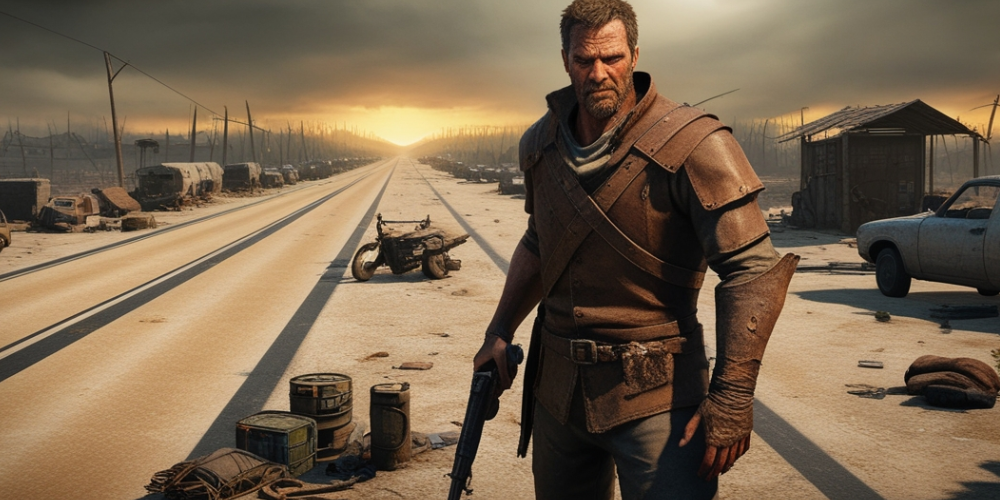Navigating Shallow Waters: Broken Roads’ Missed Opportunities in Moral Storytelling
22 Jul 2024

The best role-playing games (RPGs) often immerse players in a world where their decisions truly shape the character and the story. Games like Tyranny and Disco Elysium excel at this, putting players in the shoes of deeply flawed characters whose choices impact the world around them. When I first heard about Broken Roads, with its promise of morally complex decisions set in a post-apocalyptic landscape, I was excited. However, upon diving deeper into the game, the initial anticipation quickly gave way to disappointment. Here's why Broken Roads fell short of its potential, despite its intriguing premise.
The Moral Compass and Worldbuilding
The core idea behind Broken Roads is that players’ decisions and dialogues influence their position on a moral compass, encompassing utilitarian, humanist, nihilistic, and machiavellian viewpoints. These decisions are meant to be tested in the harsh and lawless wilds of a post-apocalyptic outback. In theory, the fluid social contract of this world requires players to constantly reassess what concepts like 'justice,' 'freedom,' and 'safety' mean in different communities, ranging from isolated homesteads to walled-in cities.
Initial Promise
At first glance, Broken Roads appears to be a game deeply invested in its world. The introduction to the game is promising, with a character creation process that feels genuinely grounded in philosophical belief systems. Early gameplay showcases a moral compass mechanism that suggests your choices will have weighty consequences. There’s even a captivating moment where your specific position on the moral compass locks you out of a utilitarian option, presenting a fascinating quandary about the nature of 'greater good' beliefs.
Surface-Level Engagement
However, the game’s investment seems to lie more in worldbuilding than in engaging with the player's choices. The world presents compelling "what if" scenarios but often fails to let the player meaningfully engage with them. For instance, in Merredin, an early settlement, the economy relies on 'dettos,' or indentured servants, a concept ripe for moral exploration. Yet, the player’s interaction with this system is limited to a single, low-stakes quest, devoid of any real challenge or consequence. This pattern repeats throughout the game, with quests that promise complicated moral dilemmas but deliver only superficial choices.

Lonely Scavenger Hunts
As the game progresses, the initially intriguing quests devolve into monotonous scavenger hunts. The freedom to travel between settlements soon becomes a tedious exercise in remembering who sells which required item, whether it be tea ingredients, philosophy books, or radio parts. The grand philosophical framework promised by Broken Roads gradually fades into the background as the game turns into a checklist of trivial fetch tasks.
Missing Moral Consequences
What’s more, the moral consequences that were supposed to define your journey fall by the wayside. Conversations that once seemed poised to be moral minefields become straightforward discussions, limited to literal descriptions of your beliefs. Actions that ought to carry moral weight, such as lying or manipulating, go largely unexamined by the game's moral compass. The critical moral component of the game, therefore, becomes an afterthought, applied neither broadly nor deeply enough to matter.
Combat and Companions
The combat system in Broken Roads is another letdown. It exists almost exclusively as optional random encounters, devoid of strategic depth. Each companion has specific skills, such as shooting or close combat, but the battles remain simplistic and often frustrating due to unresponsive controls.

Companions with No Depth
Companions, who have their own moral alignments, do little to enhance the narrative. They seldom interact with the player beyond a couple of predefined questions, such as "What do you think makes a good leader?" and "How are you?" This lack of depth means that beyond their introductory blurbs, companions remain largely one-dimensional. They neither conflict with the player nor offer any meaningful commentary on the quests or the world, making them feel more like tools than characters.
Buggy Experience and Disappointment
Bugs further mar the experience. Scenes often fail to load correctly, dialogue options appear out of context, and key quest progression is frequently not tracked properly. This led to multiple routes through the critical path being locked out before I could complete them. While the developer acknowledged these issues and hinted that more content would be added post-launch, the underlying sense is that these problems run deeper than technical glitches.

Unrealized Potential
Ultimately, Broken Roads is a game filled with unfulfilled potential. It starts strong, with a concept brimming with passion and thought-provoking ideas, but quickly loses focus. The narrative becomes vague, the gameplay repetitive, and the promised complexity of moral dilemmas never materializes. Despite its early promise, Broken Roads fails to create a memorable or engaging RPG experience. It serves as a cautionary tale of how intricate worldbuilding and complex setups are insufficient if not matched by equally compelling gameplay and narrative execution. A promising concept, but one that sadly falls flat in execution.







